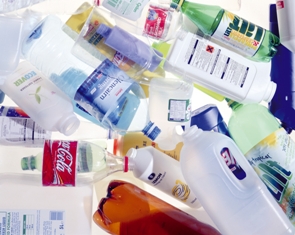, using SmartBin’s advanced bin-monitoring technology and service. Based on the efficiencies derived from a 10-week trial covering 14 of its strategically positioned textile recycling bins, Wilcox has extended the use of SmartBin technology and services to all of their 1,500-plus bins throughout its entire collection system.
Wilcox immediately saw the advantages of SmartBin’s singular bin-fill monitoring technology, which include: up-to-the-minute, real-time information about the exact level of fill in all collection bins; dramatically reduced collections costs; indisputable documentation of chain of possession and disposition of materials; and help with compliance with ever-stricter waste management regulations. SmartBin’s technology is also scalable to any type of recyclable material, including textiles, paper, glass, plastic or aluminum.
Established in 1895, Wilcox Textile Reclaimers is a family-owned corporation involved in the reclamation, recycling and export of high-quality clothing and other textile goods to Africa, Eastern Europe and Asia, as well as the largest producer/reclaimer in the U.K., in the top ten in Europe and a major world player.
Having recently installed new sorting lines that allow high-volume throughput in conjunction with increased sorting quality, Wilcox Chief Executive Officer, Martin Wilcox sought a way to eliminate the waste associated with inefficient collection processes where collection vehicles were sent to collection bins without knowing if they were full, half-full or even empty – a huge waste of manpower, fuel and resources.
The SmartBin Recycling Bank Solution was the answer. SmartBin’s technicians installed sensors in Wilcox’s 880-pound-capacity bins, whose data was sent to a web portal that allowed the client to monitor the fill-level of every bin on a real-time basis, by receiving reports and alerts via SMS or email, all for a minimal monthly subscription fee. The results of the pilot run exceeded all expectations – SmartBin’s robust automated solution completely eliminated unnecessary waste collection trips for Wilcox.
In fact, the SmartBin solution provided much more than just real-time fill-level information on the bins being monitored. During the trial period, the decision was made to initially continue with the existing collection regime, as if the sensors were not there, as a comparison. This demonstrated that very many bins were being serviced/emptied when the bins were only 25-percent to 50-percent full, and that on some occasions the bins were overflowing and site clean-up was necessary in addition to bin servicing, which at times exposed Wilcox to fines from the site owners.
The unmonitored bin-fill levels proved so unpredictable that when compared to the precision provided by SmartBin’s technology and service, the results were nothing short of astounding, with the total number of service trips reduced by over 37 percent. Wilcox benefited in several other ways: it could now archive and process the data that SmartBin was providing through its sensors that can be leveraged in numerous ways in the future, further reducing costs and increasing profitability. Wilcox could now also meet and exceed its regulatory obligations to reduce carbon emissions. And it accomplished all this with no capital outlay and no need for any special training of its employees.
“We were able to make very precise measurements that dramatically underlined the huge cost savings that SmartBin technology was providing,” states Mark McCarville, SmartBin’s Founder & CEO. “Both in terms of the loss of revenue from dispatching collection vehicles to less-than-full bins on a regular basis, and in terms of the carbon footprint of each of those trucks – which we estimated at 4.5 tons of carbon per year, per truck, times 40 trucks! – the savings from only sending trucks to bins once they were full was remarkable. And that’s what SmartBin is all about: taking an industry – materials recycling – that is already intended as an ecologically beneficial proposition and making it that much more beneficial to society, while also making it that much more profitable to those doing the work of recycling. When it comes to doing well by doing good, this is as good as it gets.”
Source : www.recyclingnewsportal.com



